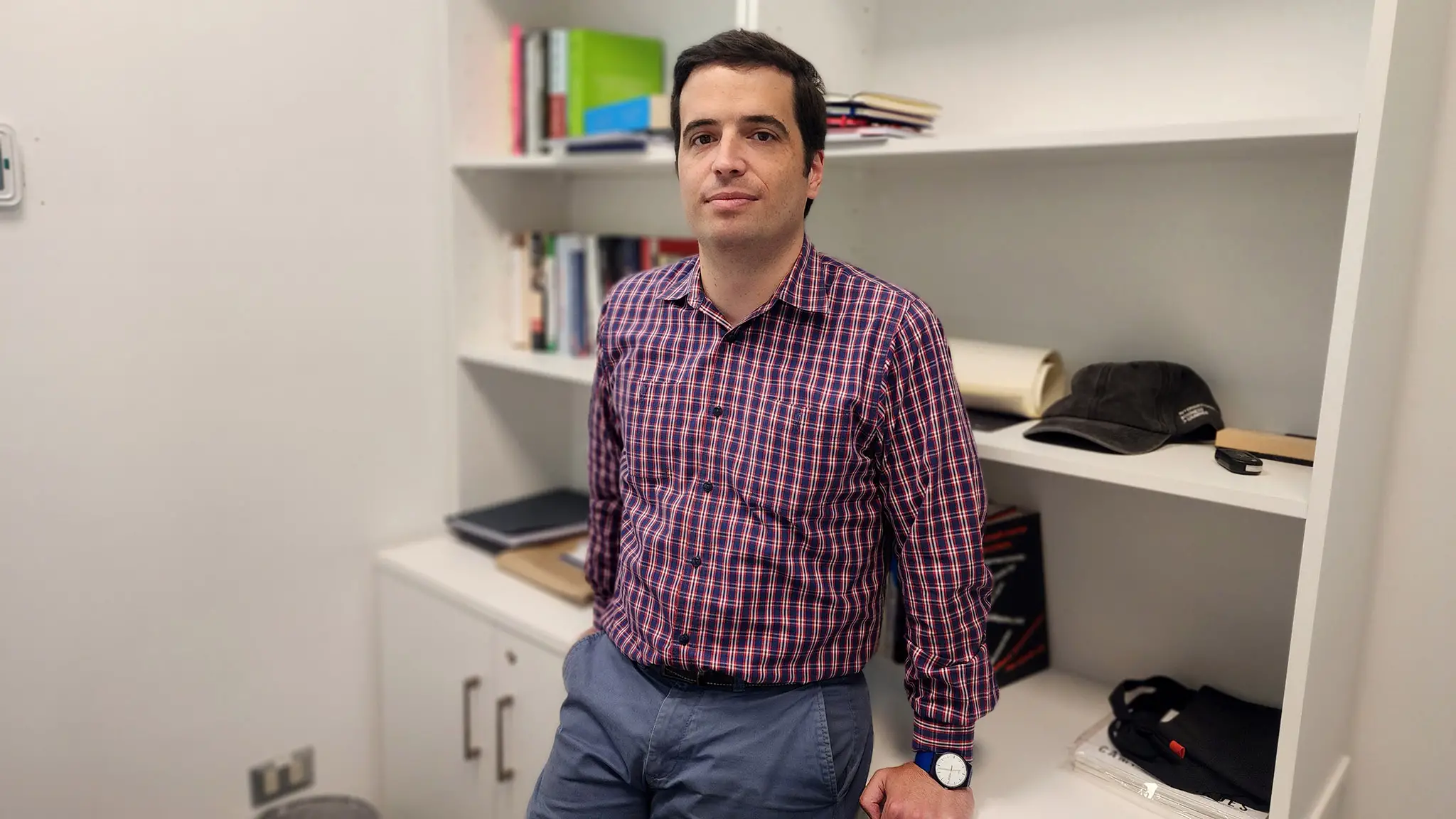Cristián Cuevas, an academic from the School of Economics and Business Administration, seeks to understand in his project how emerging countries can move from a procyclical fiscal policy to a countercyclical one, seeking to reduce economic volatility through a coordinated approach of fiscal, monetary, and macroprudential policies.
An academic from the School of Economics and Business Administration, Cristián Cuevas, won a Fondecyt Initiation grant. to develop his research project, "From Pro- to Counter-cyclical Fiscal Policy: The Role of Monetary Policy and Private Capital Flows." His thesis explores how emerging countries can move from a procyclical to a countercyclical fiscal policy, seeking to reduce economic volatility through a coordinated approach of fiscal, monetary and macroprudential policies.
The idea of researching this topic originated during an academic visit Cuevas made to Columbia University (United States) in 2024. To carry out this work, data was collected from more than 80 countries, both advanced and developing, in the period between 1960 and 2022 and the main objective of this project—which is being developed in conjunction with Horacio Sapriza, a researcher from the U.S. Federal Reserve—is to understand how emerging countries can adopt countercyclical fiscal policies, allowing them to increase spending in times of recession, rather than the traditional tendency to spend more in boom times, a practice generally known as procyclical policy.
"This issue is crucial, since, if properly implemented, it can improve overall welfare by smoothing business cycles, reducing the depth of recessions. We propose a set of macroeconomic policies that not only achieve this objective, but also reduce the incentives for governments to abandon these policies due to short-term political or economic factors," details the researcher.
The academic from the School of Economics and Business Administration, adds that over the years, it has been widely documented that the fact that governments in developing countries tend to spend more during economic booms and cut spending in recessions. This procyclical behavior contrasts with what happens in advanced economies, where countercyclical fiscal policy is more common, allowing governments to increase spending during recessions to mitigate the effects of downturns."However, procyclical policy is not an optimal strategy, since government spending in times of recession acts as an insurance policy that stabilizes the economy," the academic explains.
This phenomenon has been explained by various theories, ranging from lack of access to international markets during recessions, to policy distortions in boom times, when governments fail to save for the hard times ahead. "In this context, our study seeks to answer key questions, such as what factors have facilitated some countries to move from procyclical to countercyclical fiscal policy over the last 20 years, and what combination of fiscal, monetary, and macroprudential policies contributes to this shift. Our central hypothesis is that there is a complementarity between three key factors: regulation of private sector external debt; countercyclical monetary policy (such as lowering interest rates in times of recession); and the ability of countries to transition from procyclical to countercyclical fiscal policy. We believe that these three are mutually reinforcing and contribute to reducing governments' incentives to abandon them, even in the context of political or short-term pressures," he concludes.

